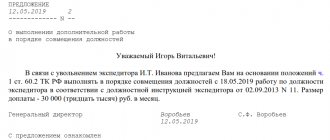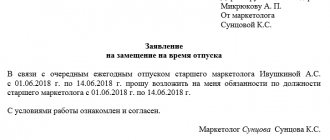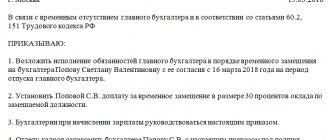Who is considered a dependent
A dependent is necessarily a disabled person.
And these are considered to be children under the age of majority, pensioners and disabled people. However, this is not all. Each of these groups has its own nuances. For example, a child continues to be a dependent if he is enrolled in full-time education, taking into account the fact that all this happens before the age of 23, and the education is not additional education courses. Pensioners - if their pension is less than the minimum subsistence level established by law. An interesting point concerns spouses. The question is often discussed on forums: is a wife a dependent? All lawyers will answer you: “YES! Is” But only if she is raising a child. Paid maternity leave does not count. A dependent husband is also possible. Of course, this is the case if he is involved in the development of the child, and the wife provides money for the family. Dependents are a kind of counterbalance to the “working population of the country.” You can read more about the rights of dependents in the labor and family codes, but it is better, if questions arise, to consult with a professional lawyer. Breadwinners in such families are provided with certain benefits.
If the wife is dependent on her husband
You can register your rights to inherited property at any time. And, if you and your husband were registered at the same address at the time of his death, then this is enough to prove your actual acceptance of the inheritance.
Civil Code of the Russian Federation Article 1153. Methods of accepting an inheritance 1. Acceptance of an inheritance is carried out by submitting, at the place of opening of the inheritance, to a notary or an official authorized in accordance with the law to issue certificates of the right to inheritance, an application from the heir to accept the inheritance or an application from the heir to issue a certificate of the right to inheritance. If the heir's application is handed over to the notary by another person or sent by mail, the heir's signature on the application must be certified by a notary, an official authorized to perform notarial acts (clause 7 of Article 1125), or a person authorized to certify powers of attorney in accordance with clause 3 of Article 185.1 of this Code .
(as amended by Federal Law No. 100-FZ dated 07.05.2013) (see text in the previous edition) Acceptance of an inheritance through a representative is possible if the power of attorney specifically provides for the authority to accept the inheritance. A power of attorney is not required to accept an inheritance by a legal representative. 2. It is recognized, until proven otherwise, that the heir has accepted the inheritance if he has performed actions indicating the actual acceptance of the inheritance, in particular if the heir:
has taken possession or management of the inherited property;
took measures to preserve the inherited property, protect it from encroachments or claims of third parties; made at his own expense expenses for the maintenance of the inherited property; paid the testator's debts at his own expense or received funds due to the testator from third parties .
Civil Code of the Russian Federation Article 1152. Acceptance of an inheritance 1. To acquire an inheritance, the heir must accept it. To acquire escheatable property (Article 1151), acceptance of an inheritance is not required. 2. Good afternoon, Victor! To establish an increased fixed base amount for a pension taking into account a dependent, two conditions must be met. Article 9 of Federal Law No. 173-FZ of December 17, 2001
recognizes a spouse who has reached the age of 55 as a
disabled As for the second condition – the fact that the pensioner wife is dependent
on the pensioner husband – it needs to be established. To do this, you must submit a corresponding application to the pension service.
At the same time, the presence of an independent source of income (pension) for a disabled family member (in this case, the wife) does not exclude the possibility of recognizing her as a dependent. The territorial body of the Pension Fund of Russia at its Commission will consider your application collectively and, taking into account all the circumstances, will make a decision - either recognize your wife as a dependent and establish an increased FBR, or refuse to recognize the fact of dependency.
In the second case, it is possible to confirm it in court. It should be noted that the legislation does not contain an exhaustive list of criteria based on which a person is recognized as a dependent. At the same time, the fact that a person is a dependent is established by the court only in cases where the bodies providing pension provision have exhausted all other possibilities for confirming it. I have no doubt that you will succeed. Good luck.
USEFUL INFORMATION: Calculate alimony from premiums
Dependents in the family: additional payments to the breadwinner's pension
Such assistance represents an increased insurance part, which is included in labor pension payments when they are calculated monthly.
The amount of additional payments directly depends on the number of non-working members in the family, the age of the pensioner himself, the presence or absence of disability - all these factors are necessarily taken into account when calculating.
- children under the age of eighteen who are entirely dependent on parental support; sisters or brothers who have not yet turned eighteen; grandchildren classified as minors; any minors continuing their studies in general education institutions or universities (assistance will be accrued until completion of their studies); persons caring for the elderly and for this reason unable to engage in work activities; disabled people, including childhood disabled people; citizens of retirement age (women over 55 and men over 60 are taken into account); people who are entitled to payments in connection with the execution of an agreement on lifelong care and maintenance (dependency).
At the first stage of calculations, it is necessary to establish the amount of the insurance part.
How can a pensioner apply for additional payment for a dependent?
Registration of additional payment to the pension is carried out in accordance with the established procedure, by contacting the applicant to the Pension Fund of the Russian Federation at the place of registration.
Required documents
Before contacting the Pension Fund for additional payment, the pensioner should prepare the necessary documents. The basic package of documents includes:
- Identification. Citizens of the Russian Federation present to the Pension Fund a passport, foreign nationals and stateless persons - a document confirming their current registration.
- Statement. The document contains basic information about the applicant (full name, passport details, residential address, etc.), as well as the grounds giving the right to receive additional payment (presence of a minor child, living with a disabled spouse, etc.). The application can be drawn up in free form, but it is recommended to use the form posted on the Pension Fund website. You can also obtain a document form to fill out at the Pension Fund branch.
- Certificate of assignment of SNILS. Based on SNILS, a PFR specialist checks the fact that an age/disability insurance pension has been accrued to the applicant, and, therefore, confirms his right to receive an additional payment.
One of the main documents required to assign an additional payment is confirmation of the applicant’s right to such an additional payment. Since the circumstances under which a citizen applies to the Pension Fund may be different, the contents of the full package of papers depend on the specific conditions for processing the additional payment.
In different cases, the following documents can serve as confirmation of the presence of a dependent, and, accordingly, the pensioner’s right to additional payment:
- Birth certificate, adoption of a child, guardianship agreement, guardianship agreement, if the applicant applies for an additional payment for a child under 18 years of age.
- When submitting documents for additional payment for a disabled spouse - a marriage certificate, a certificate from the Pension Fund of the Russian Federation stating that the spouse has been assigned a pension below the minimum monthly wage.
- The applicant's birth certificate, as well as a certificate of the amount of pension accrued to the parent, are the grounds for assigning additional payment for dependent parents.
Procedure for applying for a pension supplement
The assignment of additional payment to the pension for a dependent is carried out within the framework of the following algorithm:
Stage-1. Transfer of documents to the Pension Fund.
After preparing the required papers, the pensioner should contact the territorial Pension Fund at the place of registration. Documents can be submitted in person or through a representative, sent through a Russian Post office, or you can fill out an electronic application on the Pension Fund website.
Stage-2. Processing of documents in the Pension Fund of Russia.
Upon receipt of documents, PFP specialists accept them for verification for up to 10 working days. The date of acceptance of documents for work is determined on the basis of the application.
Stage-3. Notification of additional payment.
Upon expiration of the established period, the Pension Fund sends a notification to the pensioner:
- on the assignment of payments if all documents are completed correctly;
- about a request for revision of documents if some of the papers are filled out incorrectly or the documents are provided incompletely.
In the latter case, the pensioner is given a period of 3 months to finalize the papers and re-apply to the Pension Fund.
Payment period
The period for assigning additional payment depends on the specific situation:
- Additional payment to pensioners who support a spouse (parent) recognized as disabled due to old age is assigned for life.
- Citizens receiving additional payment for a disabled dependent have the right to payment until the relative's disability is removed.
- Additional payment for children is assigned until they turn 18 years old. This period can be extended provided that the child is studying full-time at a university, technical school, vocational school, or other educational institution (for 23 years old with supporting documents).
USEFUL INFORMATION: Until what year is maternity capital extended for a second child?
A complete termination of payment of the previously assigned additional payment amount is possible if it is established that the applicant provided false and falsified information. The basis for canceling the payment is the corresponding court decision.
Forum of Baikonur residents, laity and all Russians
As it was established during the court hearing, the father of the applicant’s wife’s daughters died in 2000. T.’s wife is currently not working, as confirmed by an extract from the work record book. As for receiving a survivor's pension in the amount of 2,463 rubles, the specified amount is significantly lower than the subsistence level established in St. Petersburg for children (4,444 rubles), and therefore cannot be a basis for refusing to satisfy the application. requirements.
This is interesting: Why can bailiffs seize a car?
Often, military personnel, when submitting reports with a request to include various persons in their personal file as family members, receive a refusal, which is justified by a short resolution stating that the fact of being a dependent is established by the court, etc. Often, the result of such refusals is that the serviceman appeals to a military court with a statement challenging the actions of military officials and with a demand that the commander of the military unit be obliged to include information about dependents in the appropriate column of the serviceman’s personal file.
An employee has a child
In accordance with subparagraph “d” of paragraph 14 of the Instruction of the State Tax Service of Russia dated June 29, 1995 N 35 “On the application of the Law of the Russian Federation “On Personal Income Tax”, dependents include women on maternity leave until their children reach a certain age and having no other income other than monthly benefits and compensation payments received in the amounts established by law. Article 3 of Federal Law No. 81-FZ of May 19, 1995 “On state benefits for citizens with children” establishes a monthly benefit for the period of parental leave until the child reaches the age of one and a half years. Thus, at the end of maternity leave, women who are on parental leave and do not receive any income other than benefits and compensation payments are classified as dependents for tax purposes.
Who are dependents and their legal status in Russia
If a dependent loses the person who is his breadwinner, the court assigns him a special benefit , which he will receive every month. The amount of this benefit is calculated by a special formula, which was formulated years earlier and specified in the pension laws of Russia.
Within the framework of the civil code in force on the territory of the Russian Federation, mandatory certification of dependency may be required for the following inheritance legal relations:
The purpose of establishing the fact of being a dependent
The procedure for establishing the fact of being a dependent is determined by the ultimate goal pursued by the disabled citizen, which may be as follows:
- Allocation of a share in inherited property and funds, or increasing its size.
- Assignment of a monthly cash benefit for the loss of a breadwinner.
- Compensation for damage due to the loss of a breadwinner.
- Mitigation of punishment when committing a criminal offense.
- Taking measures to transfer dependents, the arrested breadwinner, into care.
- Receiving social benefits provided for family members of military personnel.
- Renewal of residence permit and acquisition of citizenship.
Dependency when establishing inheritance rights
The procedure for establishing dependent status is determined by the degree of relationship of the persons applying for a share in the inherited property and funds.
A person who is related to the deceased (Part 1 of Article 1148 of the Civil Code of the Russian Federation) or who is not a relative (Part 2 of Article 1148 of the Civil Code of the Russian Federation) can be recognized as a dependent.
A dependent is a relative of the deceased
If there are family ties between the applicant for inheritance and the testator, the fact of dependency may change the order of inheritance provided for by inheritance law.
That is, if the degree of relationship does not allow one to claim priority accession to inheritance rights, establishing dependency in court allows one to include a distant relative in the list of persons of first priority inheritance.
For example, if a disabled nephew was a dependent, and the legal heirs are the wife of the deceased and his children, establishing the fact of dependence allows the nephew to claim equal shares in the property of the deceased.
In order for an applicant to be recognized as a dependent, it is necessary:
- So that the person claiming inheritance rights is officially recognized as permanently disabled (permanent loss of ability to work). The supporting document will be a certificate of disability of group I or II, issued based on the results of a medical and social examination.
- So that the duration of dependent status exceeds one year. Judicial practice has the following precedents for establishing the period of dependency:
- in a continuous count immediately before death (for example, death occurred on October 15, 2015, and the niece has been a dependent since October 1, 2014);
- in continuous calculation with an interval from the time of death (for example, three years before death, the sister of the deceased was dependent on him for one and a half years due to permanent disability);
- in cumulative terms (for example, during his life, the brother of the deceased was dependent three times for a period of four months, that is, the total duration was 1 year and 2 months).
- So that the income of the applicant for inheritance consists mainly of the maintenance allocated by the deceased. This circumstance is proven by providing certificates of income of the testator and potential dependent.
The dependent is not a relative of the deceased
In the absence of family ties, recognition of the fact that a person is dependent on the deceased allows him to be included in the list of heirs of the corresponding line. Judicial practice has a number of precedents establishing the dependent status of persons who were not legally married but lived together.
In order to claim inheritance rights in this case, you must:
- Be a disabled person of group I or II, and the date of issue of the ITU conclusion must be earlier than the date of death of the testator.
- Live together with the deceased. Evidence of this fact can include testimony from relatives, neighbors or officials (for example, representatives of social services).
- Be a dependent, that is, supported by the deceased, for more than one year. The duration of dependency is determined similarly to the case of the presence of family ties (see above).
- To be financially dependent on the deceased due to the fact that the funds allocated to him constituted the main part of the dependent’s income.
USEFUL INFORMATION: Will they get divorced if the child is under one year old?
What is Dependency
DEPENDENT , plural. no, cf. 1. Full maintenance, providing livelihood, material care. advantage in combination: dependent on someone (official). Be on someone's side. dependent. Live dependent on relatives. 2. Money, funds, care (obsolete). The church was built at the expense of a merchant.
Dependency is full maintenance or assistance, which is a permanent main source of livelihood. In the legislation of many countries, the fact of being a dependent has legal significance when assigning pensions, benefits, and inheritance.
This is interesting: Payments for the Birth of Twins in 2021
Who is provided with benefits and guarantees upon dismissal and staff reduction?
Many categories of workers have a special social status, so they are fully protected by the current law. They can count on receiving government guarantees when laying off an employee and benefits when reducing staff.
As a rule, such subordinates cannot be deprived of their jobs even due to layoffs.
Please note that citizens with family obligations are under special protection.
In case of staff reduction, the following will not lose their jobs:
- single parents with offspring under fourteen years of age;
- fathers raising disabled children who are not adults;
- single men and women with a child under fourteen years of age;
- parents with many children who have at least three children, while the youngest has not yet reached the age of three, provided that the second parent is not employed.
It should be noted that it is impossible to lay off subordinates who are on maternity leave. As already stated earlier, if a representative of the stronger sex decides to go on maternity leave, then he may be fired when he returns to his previous position. This is explained by the fact that many employers do not take such an initiative from subordinates very well.
In addition, they are not always ready to pay maternity leave to the employee. Especially when it comes to parental leave for a representative of the stronger sex. Bad relationships with management cannot be avoided.
This happens because the boss is not always willing to wait a long time for his subordinate to return. No matter how qualified and experienced a person is, no one is irreplaceable.
It is much easier for an employer to find another person for a position than to wait for a man who is on maternity leave.
Expert opinion Irina Vasilyeva Civil law expert
A person who is the sole breadwinner in a family can only be fired if the enterprise or company is liquidated.
Despite the fact that there are certain guarantees for employees who have family obligations, a boss can terminate an employment contract with a subordinate for other valid reasons. We are talking about persons who are not covered by these benefits.
If a man wants to go on maternity leave instead of his wife, then he should carefully weigh this decision. Otherwise, there is a possibility that the employer will decide to fire the subordinate after his return to the workplace. A person may lose a good position. Unfortunately, finding a well-paid job with suitable working conditions is extremely difficult these days.
State dependents
Based on references to dependency in the legislative acts of the Russian Federation, it can be determined that a dependent is a citizen who does not have the ability to provide for himself financially, and therefore receives material support from another person or the state. Able-bodied unemployed citizens cannot be dependent.
In this case, brothers, sisters and grandchildren are recognized as disabled family members, provided that they do not have able-bodied parents; - one of the parents or spouse or grandfather, grandmother, regardless of age and ability to work, as well as a brother, sister or child who has reached the age of eighteen years, if they are caring for children, brothers, sisters or grandchildren under fourteen years of age, and do not work; - parents and spouse, if they have reached 60 or 55 years of age (men and women, respectively) or are disabled people with limited ability to work ;- grandfather and grandmother, if they have reached 60 or 55 years of age (men and women, respectively) or are disabled people with limited ability to work, in the absence of persons who, in accordance with the legislation of the Russian Federation, are obliged to support them.
Who is a dependent? What is legal dependency?
For family members and dependents from this category, compensation and support from the state are provided at the federal and regional levels. Primarily, benefits are provided on the basis of pension provision in accordance with current legislation. Sanitary resort treatment is also provided if there are medical indications, as well as the absence of contraindications for the available options for issuing a voucher.
For minor children who are dependent on both disabled parents (or if a single parent is disabled), a number of support measures are provided. Minor citizens of the Russian Federation in such families are provided with financial compensation for utility costs in the amount of 50%. The calculation is made based on the amount of consumed resources, calculated on the basis of readings recorded by devices, within the framework of standards for the level of consumption of relevant services. In the absence of devices for recording payments for utility services, consumption standards are used as a basis.









